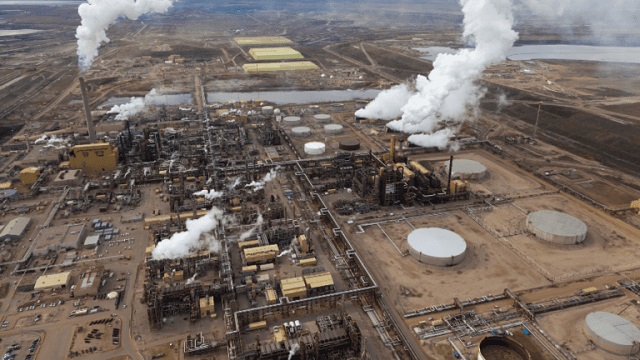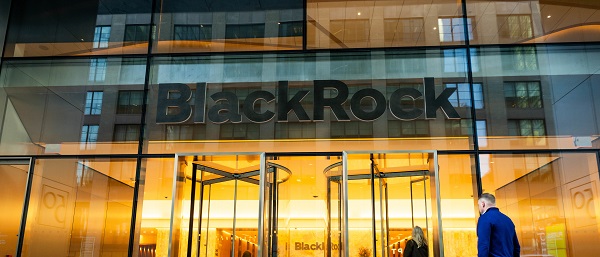Business
Prime minister must excise terrible energy policies

From the Fraser Institute
Prime Minister Mark Carney recently unveiled his new cabinet. And there’s quite a lot of work to do.
Before his election victory, the prime minister exorcised a widely-despised element of Canada’s climate policy, the “consumer” carbon tax, which was imposed directly on Canadians for their consumption of energy (electricity, heating fuel, gasoline). At the same time, in response to President Donald Trump’s tariff war, the prime minister made grand proclamations of future energy glory. “Canada has a tremendous opportunity to be the world’s leading energy superpower, in both clean and conventional energy,” he said. “We are going to aggressively develop projects that are in the national interest in order to protect Canada’s energy security, diversify our trade, and enhance our long-term competitiveness—all while reducing emissions.”
Great plan. So what’s next?
Again, quite a lot. If Prime Minister Carney is serious about reforming Canadian energy policy so Canada can compete against a likely resurgent Trump-driven U.S. energy sector, he must follow this latest bit of tax reform and vocal boosterism with genuine regulatory reform. In other words, the Carney government must repeal the anti-energy regulations implemented by the Trudeau government.
First on the chopping block—Bill C-69, colloquially known as the “No More Pipelines Act,” which created massive uncertainty by introducing vague assessment criteria including “gender implications” for major energy projects including pipelines and LNG export facilities. If Ottawa simplified the project review process, it could help Canada access more lucrative markets for energy products outside the United States.
Then there’s Bill C-48 (colloquially known as the “Tanker Ban Bill”), which changed regulations for large vessels transporting oil to and from ports on British Columbia’s northern coast, effectively banning such shipments and limiting the ability of Canadian firms to export to non-U.S. markets. Tanking the tanker ban should be an obvious sail forward.
Next up, the Trudeau plan to cap greenhouse gas emissions from the oil and gas sector (at 35 per cent below 2019 levels by 2030), alongside major new regulations for methane emissions in the sector. These regulations will likely raise costs and curtail production. By removing them, Ottawa can increase the ability of Canada’s energy sector to compete against a rising U.S. energy sector.
Finally, the Trudeau government’s Clean Electricity Regulations will likely drive electricity rates through the roof while ushering in an age of less reliable electricity supply—a two-handed slap to Canadian energy consumers. Ending these misguided regulations is a no-brainer for the new government in Ottawa.
Prime Minister Carney’s first acts on the Canadian energy file look good. The carbon tax is half-dead (the industrial tax remains in place). And a new pro-energy rhetoric has displaced Trudeau’s “phase it out” framing of Canadian energy policy. But if Carney and his new cabinet are serious about unleashing Canada’s energy potential, reducing dependence on the U.S. market, reaching more lucrative foreign markets, increasing production, and so on, they better get cracking on a regulatory reform agenda lest they find themselves hamstrung by their predecessor’s regulatory legacy.
Business
Breaking: Explosive FBI Warning—CCP, Iran, and Mex-Cartels Partnering in Canada to Move Fentanyl and Terrorists Into U.S.

 Sam Cooper
Sam Cooper
Patel’s warning echoes The Bureau’s exclusive reporting on a criminal convergence linking CCP-backed chemical suppliers, Iranian proxies, and Mexican cartels operating through Vancouver superlabs
In an explosive Sunday interview that will place tremendous pressure on Prime Minister Mark Carney’s new Liberal government, FBI Director Kash Patel alleged that Mexican cartels, Chinese Communist Party operatives, and Iranian threat actors have forged a new axis of criminal cooperation, using Canada’s porous northern border and the Port of Vancouver—not the southern Mexican border—as their preferred entry point to flood fentanyl and terror suspects into the United States.
“In the first two, three months that we’ve been in the seat under Donald Trump’s administration, he has sealed the border,” Patel told Fox News’ Maria Bartiromo. “He has stopped border crossings. So where’s all the fentanyl coming from? Still? Where’s the trafficking coming from still? Where are all the narco traffickers going to keep bringing this stuff into the country? The northern border. Our adversaries have partnered up with the CCP and others—Russia, Iran—on a variety of different criminal enterprises. And they’re going and they’re sailing around to Vancouver and coming in by air.”
Patel asserted that adversarial regimes—including Beijing and Tehran—are now working in tandem on “a variety of different criminal enterprises,” and exploiting what he called the “sheer tyranny of distance” on America’s northern frontier, where vast terrain and lax enforcement in Canada have allegedly enabled fentanyl pipelines and terrorist infiltration.
Pointing directly at Carney’s government, Patel continued:
“Now we’re focused on it and we’re calling our state and local law enforcement partners up [at the northern border]. But you know, who has to get to step in is Canada—because they’re making it up there and shipping it down here.”
The FBI director’s warning—posted on the White House’s X account— follows exclusive reporting by The Bureau and a newly released 2025 threat assessment from the U.S. Drug Enforcement Administration, which, for the first time, officially flags Canada as an emerging threat node in the North American drug supply chain.
As The Bureau reported earlier this week, the DEA highlighted the dismantling of a fentanyl “super laboratory” in October 2024 in Falkland, British Columbia—a mountainous corridor between Vancouver and Calgary—as an emerging threat in fentanyl trafficking targeting the United States. Sources pointed to the same converged threat network—China, Iran, and Mexico—mentioned today by FBI Director Kash Patel.
“According to these sources,” The Bureau reported Friday, “the site forms part of a broader criminal convergence involving Chinese, Mexican, and Iranian networks operating across British Columbia, Alberta, Saskatchewan, Manitoba, Ontario, and Quebec. The Bureau’s sources indicate that the Falkland facility was connected to Chinese chemical exporters sanctioned by the United States Treasury, Iranian threat actors, and operatives from Mexican drug cartels.”
In his remarks today, Patel appeared to directly link this criminal convergence to terrorist infiltration.
“And I’ll give you a statistic that I gave to Congress that nobody was paying attention to,” Patel added. “Over 300 known or suspected terrorists crossed into this country last year, illegally… 85 percent of them came in through the northern border.”
Patel also appeared to turn up the political pressure on Ottawa, alluding to President Trump’s recent controversial statements about Canada—which became a flashpoint in the federal election, with many voters embracing the Liberal Party’s campaign framing Carney as a bulwark against Trump.
“I don’t care about getting into this debate about making someone the 51st state or not,” Patel said, referencing Trump’s remarks. “But [Canada] are a partner in the north. And say what you want about Mexico—but they helped us seal the southern border. But facts speak for themselves. It’s the [northern] border that’s open.”
The Bureau will continue to follow this story in the coming week.
The Bureau is a reader-supported publication.
To receive new posts and support my work, consider becoming a free or paid subscriber.
Invite your friends and earn rewards
Automotive
Tesla stock soars for fourth straight week on Musk Play plan, board shake-up

 MxM News
MxM News
Quick Hit:
Tesla shares surged more than 16% this week, notching a fourth consecutive week of gains and cutting into steep year-to-date losses. The rally is fueled by news of a potential new pay package for Elon Musk and the strategic addition of Jack Hartung, Chipotle’s outgoing president, to Tesla’s board. These developments come amid rising scrutiny over the board’s governance and compensation decisions, especially concerning Musk’s controversial $56 billion pay package from 2018.
Key Details:
- Tesla stock has gained over 16% this week and is now down just 13% for the year, recovering from a 40% loss earlier in 2025.
- Jack Hartung, Chipotle’s president, will join Tesla’s board on June 1, bringing seasoned business leadership.
- A special Tesla board committee is evaluating a new compensation plan for Musk after legal challenges to his previous $56 billion package.
Diving Deeper:
Tesla’s stock (TSLA) closed the week strong at $349.98, climbing 2.09% on Friday alone and marking a fourth straight week of gains. This momentum has helped the electric vehicle maker erase much of its earlier 2025 losses, which had topped 40% at one point. Now down just 13% year-to-date, the turnaround comes as investors digest two pivotal developments that could shape Tesla’s future leadership and direction.
The most immediate catalyst: Tesla’s announcement that Jack Hartung, the president of Chipotle Mexican Grill, will join its board of directors beginning June 1. Hartung will also serve on the audit committee, a significant appointment given Tesla’s board has been under fire for lack of independence and weak oversight of CEO Elon Musk. Hartung brings executive experience from not only Chipotle but also board roles at Portillo’s, the Honest Company, and ZocDoc—credentials that could help restore confidence in Tesla’s boardroom governance.
Hartung’s addition follows the bombshell report from the Financial Times earlier this week that Tesla’s board has formed a special committee to explore a new pay package for Elon Musk. The committee’s task is to find “alternative ways” to reward Musk for past work in case Tesla fails to reinstate the original 2018 compensation deal, which is now under appeal with the Delaware Supreme Court. That deal—valued at $56 billion—has drawn fire from large shareholders, prompting broader questions about Musk’s influence over Tesla and whether the board has effectively served as a rubber stamp for his ambitions.
Critics have warned that Musk’s threat to redirect his artificial intelligence efforts away from Tesla unless he is granted additional stock options represents an outsized concentration of power in the hands of one individual. While Musk continues to be the face of the company’s innovation and success, these governance concerns have given activist investors and institutional shareholders new ammunition.
Tesla board chair Robyn Denholm has also come under scrutiny, particularly after Wall Street Journal reporting suggested the board was considering replacing Musk or had urged him to spend more time at the company. Denholm has publicly denied those claims, but her own record—cashing out more than half a billion dollars in Tesla stock since joining the board in 2014—hasn’t helped stem criticism. In fact, the board recently had to settle a lawsuit over excessive director compensation, refunding millions of dollars to shareholders.
Despite these governance challenges, the market has responded positively to the board’s recent moves, seeing them as steps toward restoring stability and investor confidence. The addition of Hartung and the new pay committee could signal a willingness to address long-standing concerns about independence and oversight, even as Musk remains firmly at the center of Tesla’s orbit.
For now, investors appear to be betting that a more disciplined board—paired with a still-charismatic and high-impact CEO—could be a recipe for renewed growth and focus.
‘Elon Musk introducing the Model X” by Steve Jurvetson licensed under (CC BY-SA 2.0)
-

 Alberta7 hours ago
Alberta7 hours agoAlberta’s oil bankrolls Canada’s public services
-

 Alberta9 hours ago
Alberta9 hours agoCanada’s oil sector is built to last, unlike its U.S. counterpart
-

 Crime1 day ago
Crime1 day agoRCMP warns Central Alberta property owners of paving contractor scams
-

 COVID-196 hours ago
COVID-196 hours agoFreedom Convoy leader Tamara Lich to face sentencing July 23
-

 Alberta1 day ago
Alberta1 day agoIt’s not just Alberta flirting with western separatism now
-

 Crime1 day ago
Crime1 day agoVeteran RCMP Investigator Warns of Coordinated Hybrid Warfare Targeting Canada
-

 Business5 hours ago
Business5 hours agoThe ESG Shell Game Behind The U.S. Plastics Pact
-

 Alberta8 hours ago
Alberta8 hours agoAlberta’s industrial carbon tax freeze is a good first step



